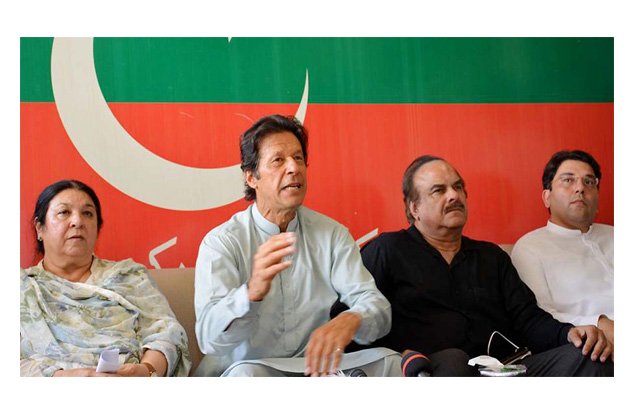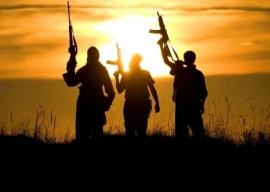
The reference was filed in election commission by Dr Yasmeen Rashid, who contested the 2013 general elections against the premier from NA-120 Lahore on the PTI’s ticket.
“We have enough evidence to get the prime minister disqualified,” Dr Yasmeen told journalists outside the Election Commission of Pakistan (ECP) office in Islamabad.
PTI spokesperson Naeemul Haq added the party had been left with only one option to take the matter of Panama Papers to court, as no progress on the terms of reference (ToRs) for its inquiry could be made.

He also called for the appointment of new members at the top electoral body at the earliest so that the pending cases could be settled.
A day earlier, the major opposition party, Pakistan Peoples Party, had also decided to move the election commission for disqualifying the premier on accusations of keeping offshore companies as exposed by the Panama leaks.
On Friday, the PTI chief also announced his party would like to exhaust the legal options before taking to the streets to campaign for PM Nawaz’s ouster.
“This is a war for democracy and we will go to the election commission and then the apex court before taking to streets as the last option,” announced Imran Khan at a press conference at his Bani Gala residence.
The premier, he claimed, had been breaking the laws of the land from the day he entered politics. He also accused Nawaz of taking money from an intelligence agency and getting his loans written off.
But, the PTI chairman added, the PM has never been held accountable despite the Hudaibiya Paper Mills case or filing falsified income statements with the Election Commission of Pakistan (ECP).
The PTI chief said his party may go for an alliance with other opposition parties for filing a reference or moving the Supreme Court against the senior Sharif. He, however, ruled out the possibility of an electoral alliance with any political party.
Responding to a question about his government financing a notorious militant-friendly seminary, Imran said about 2.2 million students in Khyber-Pakhtunkhwa studied in seminaries as compared to 800,000 in English-medium schools. “Why those who study in religious schools should be left out and not given the opportunity to become a part of the society?”
He said the decision has been taken to reform the madrassah. “If we are to establish peace in the long-term, then we have to reform the seminaries and the education system,” he reasoned.
Published in The Express Tribune, June 25th, 2016.
1719660634-1/BeFunky-collage-nicole-(1)1719660634-1-405x300.webp)

1732276540-0/kim-(10)1732276540-0-165x106.webp)

1732274008-0/Ariana-Grande-and-Kristin-Chenoweth-(1)1732274008-0-165x106.webp)
1724249382-0/Untitled-(640-x-480-px)1724249382-0-270x192.webp)


1732270499-0/Express-Tribune-(7)1732270499-0-270x192.webp)
1732267715-0/BeFunk_§_]__-(32)1732267715-0.jpg)







COMMENTS (1)
Comments are moderated and generally will be posted if they are on-topic and not abusive.
For more information, please see our Comments FAQ